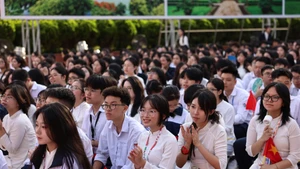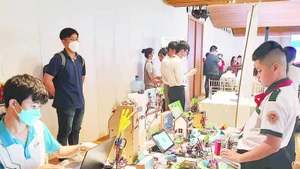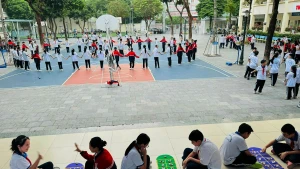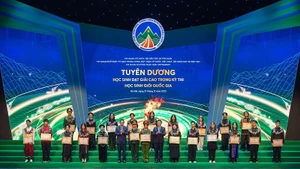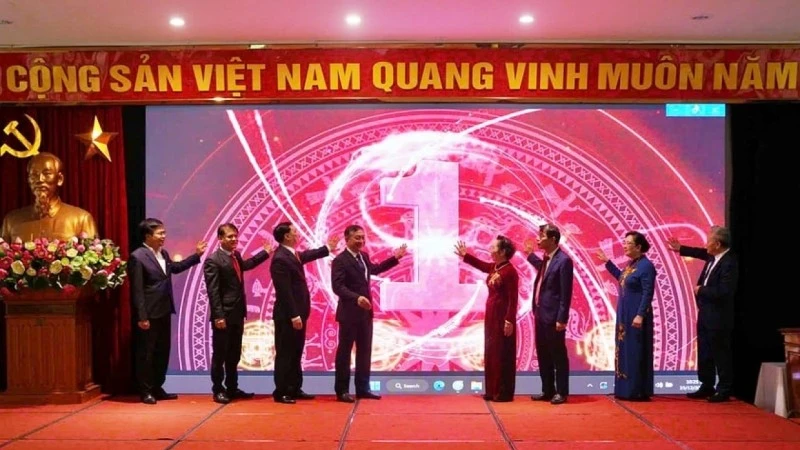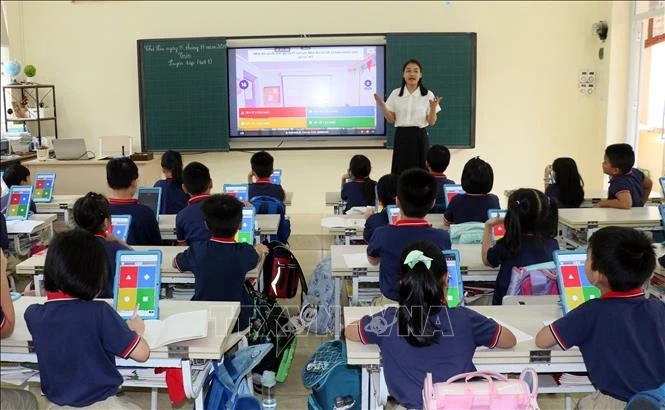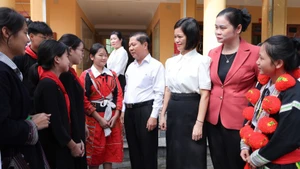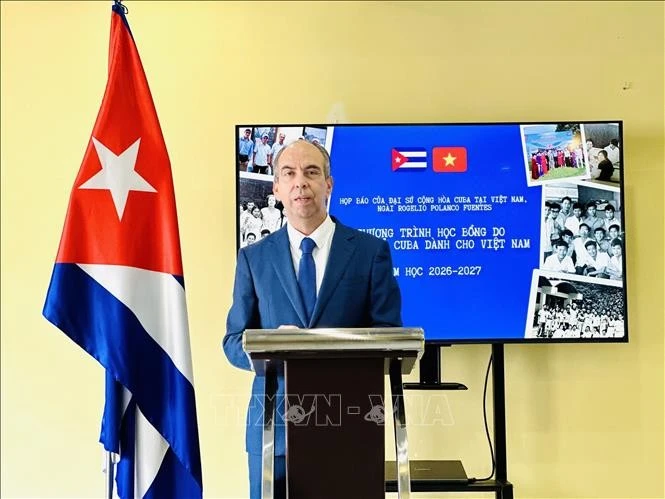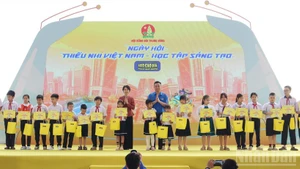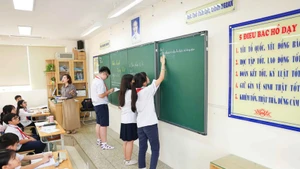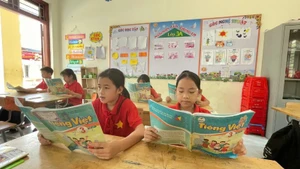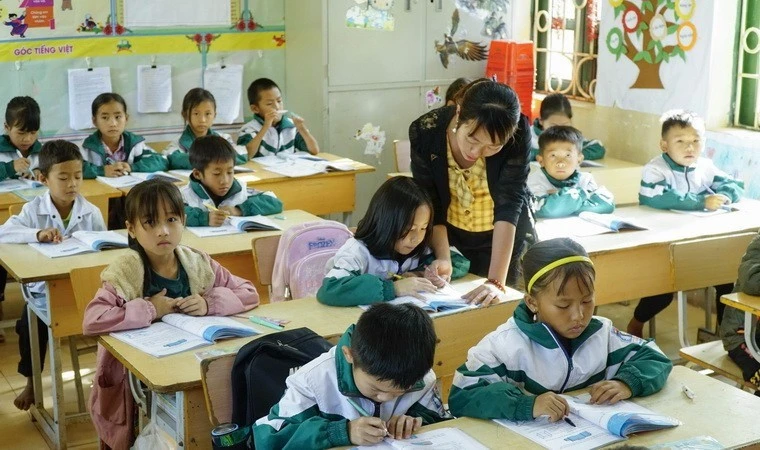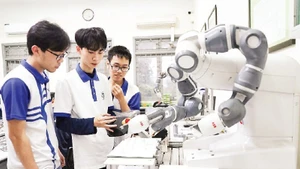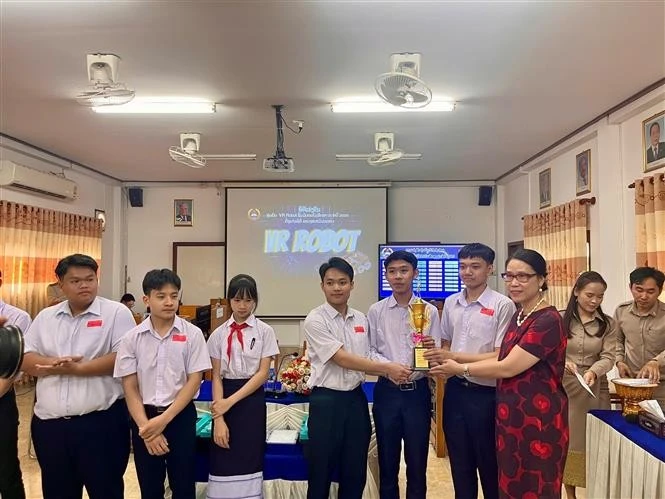The initial results were reviewed by the Southeast Asian Ministers of Education Organisation (SEAMEO) at the SEA-PLM 15th Regional Steering Committee Meeting held in April in Malacca, Malaysia, according to Viet Nam’s Ministry of Education and Training (MOET).
Among the seven participating countries — Cambodia, East Timor, Laos, Myanmar, Malaysia, the Philippines, and Viet Nam — Vietnamese students remain in the leading group across all three competencies surveyed, namely reading, writing, and mathematics.
The detailed scores and rankings will be officially released by the end of 2025.
Vietnam successfully conducted a pilot survey in 2023 involving 30 primary schools across 9 provinces and cities, followed by the official survey in 2024 at 152 primary schools in 53 provinces and cities nationwide.
Vietnam first joined SEA-PLM in the 2019 cycle, which included six countries. In that cycle, Vietnamese primary students ranked first in mathematics, reading, and writing.
They scored significantly above the regional averages: with mathematics at 341.55 points (regional average 304.79), reading at 336.46 points (regional average 300), and writing at 328.01 points (regional average 304.92).
According to Viet Nam’s Ministry of Education and Training, the 2019 and 2024 SEA-PLM results of Vietnamese students align closely with findings from the Programme for International Student Assessment (PISA), which evaluates 15-year-old students globally.
In the 2022 PISA assessment, Vietnamese students ranked second in the ASEAN region after Singapore, placing 31st in Mathematics, 35th in Science, and 34th in Reading among 81 countries and economies.
Notably, Vietnamese students’ mathematics scores are among the highest after Hong Kong (China), Taiwan (China), and the Republic of Korea when adjusted for socio-economic factors.
SEA-PLM is a collaborative initiative led by the Southeast Asian Ministers of Education Organisation (SEAMEO), UNICEF’s regional office, and the East Asia and Pacific Regional Bureau.
It aims to assess the extent to which primary students in Southeast Asia meet their national education goals, focusing on literacy, numeracy, writing, and global citizenship.
Conducted every five years, the programme provides a framework for countries to monitor and improve primary education quality.
SEA-PLM is the first regional assessment to use an ASEAN values-based model and a complex framework to measure students’ ability to apply knowledge and skills in practical contexts. It also measures writing competence across diverse writing systems using a common scale and collects information from students, teachers, schools, and parents through tests and questionnaires.
Viet Nam’s participation in SEA-PLM serves to objectively assess its education quality relative to the region, analyse current conditions, and propose policies to enhance national education standards.
It also offers Viet Nam an opportunity to deepen integration in education within ASEAN and demonstrate its commitment to building a common ASEAN community.
The SEA-PLM results provide valuable data with which to inform education policymakers and managers in Viet Nam, enabling them to draw on international experience to improve education quality and better prepare students for real-world challenges and future success.
SEA-PLM was initiated by SEAMEO, UNICEF, and partners including the World Bank and the ASEAN-Korea Development Fund (AKCF), aiming to support member countries in developing effective learning assessment systems that promote equitable and meaningful education for all children in the region.


